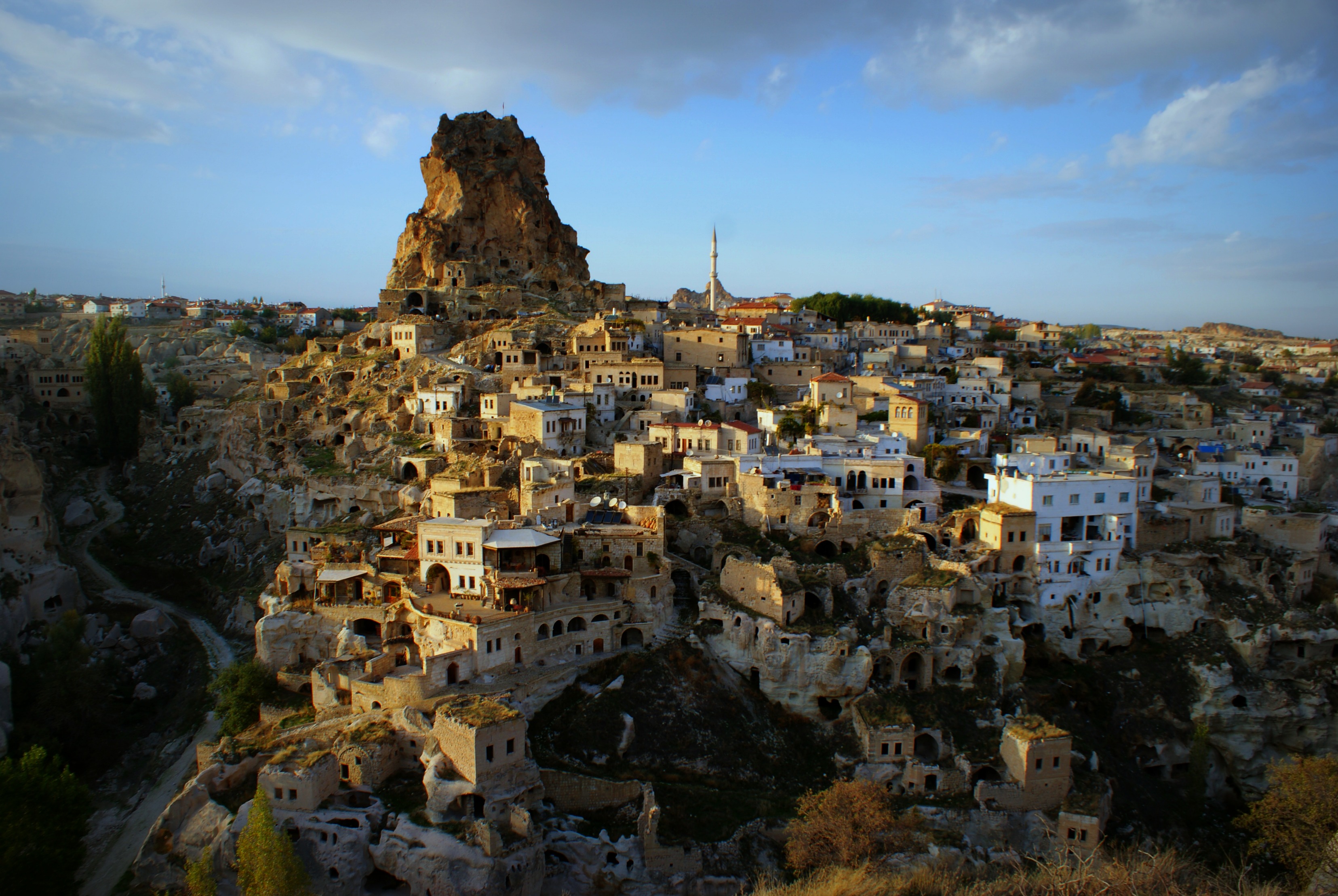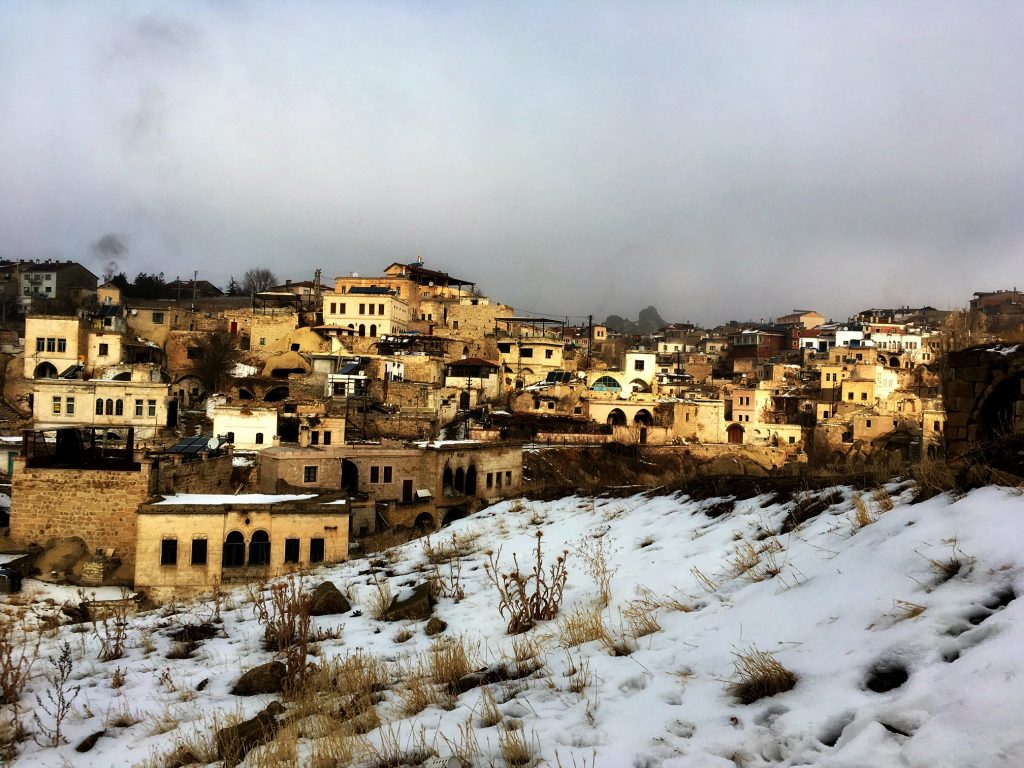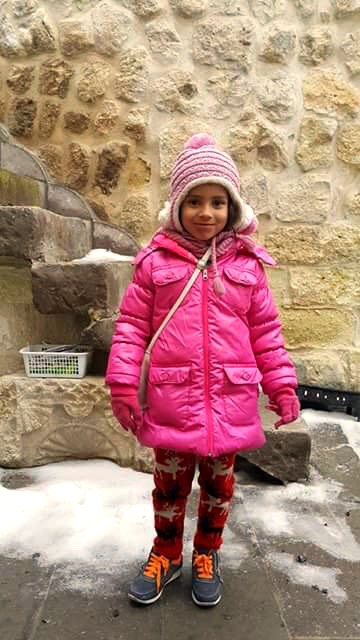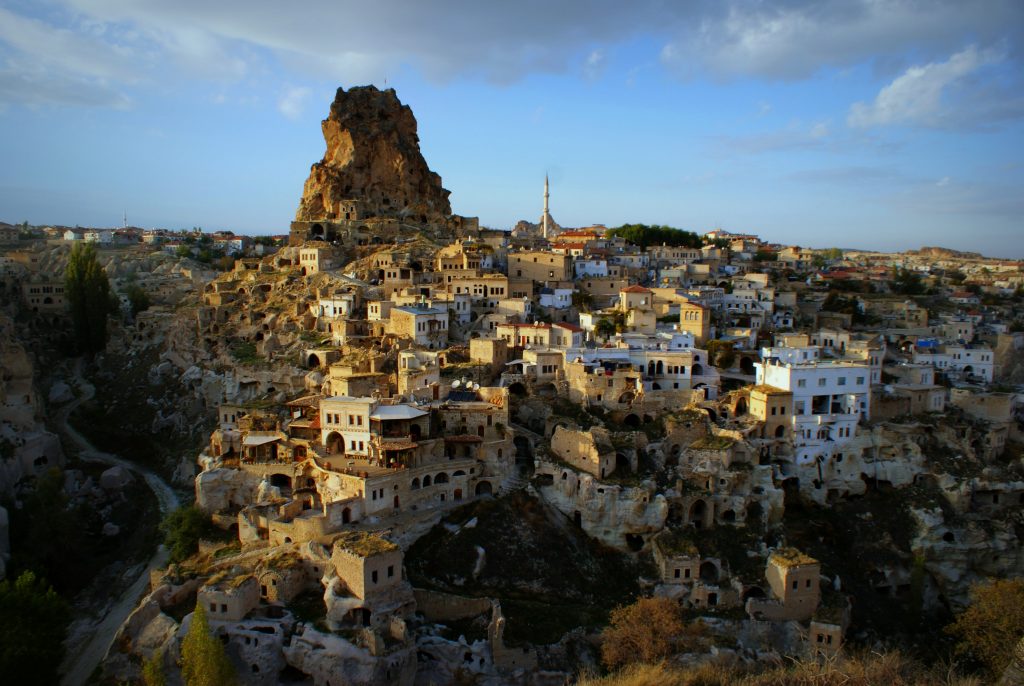Introduction from Diane
First, a bit about me. I was born in Boston and spent my teenage years wrestling with an urge to get out and see the world. For almost 20 years, I’ve taught linguistics at the University of Leeds in England. In 2004, I took a career break to go backpacking and met a Turkish man. We got married, had two children, and then the marriage came to an end. Along the way I learned to speak basic Turkish and met a collection of friends, both Turkish and foreign, who are still an important part of my life. I love Turkey and go there once or twice a year so that the children can spend time with their father and his family in their village. Some of my friends there are now involved in the efforts to help the Syrian refugees living in Turkey. There are an estimated 3 million Syrians in Turkey (probably more, since many are still undocumented). Only about 10% live in the UN-funded refugee camps near the Syrian border. The rest are distributed throughout Turkey. They’re not entitled to any housing or financial support directly from the Turkish government but can get support from charities and NGOs working in the country. Most Syrian adults speak little or no Turkish, and a lot of their children aren’t enrolled in schools. This year I spent my Christmas vacation talking to people who are running projects to help the refugees. I wanted to tell their stories, the stories about what happens after the newspaper headlines die down, the stories about lives passed in years of limbo, waiting to go home or to feel at home in a place that is not home.
Sanctuary
The village sits on the high plateau in the center of Turkey. Until recently a conservative and insular agricultural town, its 2500 residents now rely heavily on tourism. A few foreigners live there, drawn to the beautiful landscape and the slow pace of life. For the past three years, a steady stream of Syrian refugees has quietly arrived in the village. Early in 2016, some local residents got together to set up a small-scale organization to help the refugees settle into their new lives in Turkey. One of the residents provided most of the funding, and a lot of advice and help came from Narjice from Open Arms in Kayseri, another charity in the area. The day-to-day organizing is done by a Syrian named Ahmet, who came to the area because his friend Juju grew up there, along with Juju’s mother, Nell, and other friends in the village. These grassroots projects are springing up all over Turkey to help the roughly 3 million Syrian refugees living there, and they all face the same kinds of challenges. Our news headlines are about dramatic raft landings on Mediterranean beaches or evacuations into UN camps, but for the refugees, getting out of Syria is only the beginning, the first step in a much longer process. I spent some time in the village in December 2016. Nell is an old friend of mine, and I spent long hours in Nell’s cozy kitchen while the snow fell outside, talking to Juju (who works for a refugee NGO in Ankara), Ahmet, and Nell herself. I wanted to hear all about their project.
Before starting work in the village, my friends tried to get official permission from the kaymakam, the governor of the provincial district. They sent in a project proposal in Turkish, and then another one in English. The kaymakam replied to their request in a terse email. The answer was no, with no reason given for his decision. The mukhtar, the elected local leader of the village, was just as unhelpful. Ahmet was demoralized, but the others gave him a pep talk, and they decided to start work anyway. The first stage was setting up a database of the Syrian families in the village, to count them and assess their needs. In the beginning, it was hard to find them, as it is in the refugees’ best interests to avoid attention. As is the way of grassroots organizers, Ahmet walked around the narrow streets with a paper questionnaire, but abandoned that system when he realized that the forms made most of the refugees uncomfortable; a lot of them are illiterate, and they’re wary of visits from officials. To gain their trust, Ahmet stopped using paper forms and broke the ice by telling them about his own experiences in the war. Once he had talked to a few families, he tracked down the others through word of mouth, until he had made contact with all of the Syrians living in the village.
In the space of 3 months, Ahmet found 37 families (around 340 people) for his database. Another 7 families completely refused to talk to him and are still off the register. In order to get a sense of each family’s real situation, Ahmet made a point of going inside their homes and counting their children. Some families had enough money to live pretty comfortably. Other families were destitute, living in absolute poverty in substandard housing. Most families were large, some with 7-8 children, and he found 7 orphans being raised by relatives among them.
It turned out that most of the Syrians had been in the village for around 3 years and were from the same area in eastern Aleppo (the part now being flattened in the war). The first families came to find work in the village, the men in construction and the women in agricultural jobs, attracted by cheap rents and a low cost of living compared to other areas of Turkey. Once safely in the village, they had contacted neighbors, friends, and relatives back in Aleppo, who followed them to settle.
Turkey is famous for its hospitality to outsiders, and the Islamic faith strongly emphasizes the importance of helping the needy. When the Syrians started to arrive in the village 3 years ago, the local belediye (town council) gave them free coal to heat their houses in winter, their usual policy to help any struggling family. Villagers brought food to the Syrians, gave them jobs, and helped them set up their homes. The belediye also started out by giving them a living allowance of 300TL/month (about $85). But things started to change. However, the monthly payments were quickly stopped by the hostile mukhtar. In the past couple of years, as perceptions and portrayals of Muslim countries have become increasingly negative in Western countries, the Turkish economy has gone downhill, tourists have stopped coming, and local people have started to struggle financially. The Syrians still need to pay their rent, but there aren’t enough jobs to go around. In this tight-knit village, where most people are related to each other, life is far from luxurious. The Turkish villagers see the Syrian children hanging around in the street, and they see the adults who still only speak Arabic taking charity, and they feel like their own needs are being overlooked. Thus, anyone working with the refugees in the village needs to keep a very low profile to avoid stirring up even more resentment.
Once Ahmet had finished counting up the families, the obvious next step for the project organizers was to think about education and schooling for the children. Most of Syrian kids in the village were not in school, but everyone working with refugees in Turkey sees school as vital for social and language integration into the community, and groups of Syrian kids playing in the streets is not good for PR. This turned out to be a tricky problem. The local elementary school at first refused to take the children, arguing that they had full enrollment and no extra support for refugees. But, legally, schools aren’t allowed to turn children away, and in other parts of Turkey schools are splitting the school day into two sessions to create class time for the influx of extra children. More pressure was put on the school, and eventually they agreed to accept the Syrians. Yet at the same time, it became clear that the Syrian parents were not pushing very hard to enroll their kids. In Aleppo, most of them had worked as casual laborers selling vegetables, in restaurants, or at construction sites. They have little education themselves and are illiterate. As a result, getting their kids into school isn’t high on their priority list, especially for girls. At the time of this writing, only about 17 of the 93 Syrian kids in the village are enrolled in school.
The project organizers considered trying to run Turkish lessons for the kids but decided to wait until their more basic needs had been met. They collected second-hand clothes and distributed them to the families. Then they heard about ASAM (the Association for Solidarity with Asylum Seekers and Migrants), a charity that gives out monthly food cards to each family and hires lawyers for refugees who need legal representation. Ahmet managed to register all of the families with ASAM. As winter set in, he visited each house, and if the family seemed to be in bad shape, he gave them food parcels. Winters are bitterly cold in the village, and when the weather turned last fall, most of the children had no winter clothes. Nell and her friends took up a collection. They bought new winter coats for 93 children and shoes for 69.
A few of the Syrians also need extra medical care. One 21-year-old man came to Turkey maimed in the war. His leg is badly fractured; he needs surgery, and maybe amputation, but his leg has developed a chronic infection, so he needs to wait. He is in constant agony, but his family can’t afford strong enough painkillers or regular trips to the hospital for treatment. Another family had been living for three years in substandard housing: 15 people in two rooms. While a contractor was working in the development above their house, the roof collapsed on them in the middle of the night. The neighbors dug them all out alive, but they suffered terrible injuries: the grandmother had 3 broken vertebrae and broken hips, and the 33-year-old uncle injured his groin and can no longer have children. The worst victim of the roof collapse was an orphan boy of 10 years old; he lost his foot, suffered smashed buttocks and internal injuries and now lives with a colostomy bag.
This has been a hard year. With work drying up, most of the Syrians in the village are destitute. At first, landlords were gracious about tenants who had fallen into debt, but as the local economy nosedives, more landlords have started evicting families. The atmosphere in the village is tense. Last summer there was a drunken squabble between a group of local men and two Syrian teenagers. One of the Syrians pulled a knife and stabbed one of the Turks in the neck. The boys were chased into a nearby hotel while a lynch mob formed outside. Someone called the jandarma [the local Turkish army] and they managed to discreetly put the boys on a bus to another town. Soon afterwards, in July 2016, there was an attempted military coup in Turkey. The coup failed, but President Erdogan embarked on a brutal purge of suspected plotters and whipped up nationalist feelings against perceived enemies of the state. For a few weeks after the coup, he asked his supporters to take to the streets to demonstrate their loyalty. Every night in the village, men roamed the streets banging drums to intimidate anyone not quite patriotically Turkish enough. The mukhtar and his supporters drew up a petition to evict all of the Syrians from their homes and throw them out of the village. Several of the local landlords stood up to him and refused to evict their tenants. Meanwhile, Ahmet contacted a friend at the UN. Someone high up contacted someone higher up than the mukhtar, and he was forced to back down. The Syrians stayed.
So I spent 2 weeks in the village, listening to these stories and more (and I take responsibility for any mistakes in my retelling). I did what I could to help, which seemed like a drop in the ocean, but at least a tangible drop. With some donations from work colleagues, I helped give out warm gloves and hats, bought food to give to the families whose food cards still hadn’t arrived, helped with some medical bills, and bought some more winter coats. I met a series of small children as they turned up asking Ahmet for mittens and shoes and groceries. I wished that I could speak Arabic so that I could ask about their lives. The good news is that these children’s stories have been heard and drawn and painted: just after I left, I heard that Léonie, an art therapist who works with refugee children, was about to start running art therapy workshops with them.
In his own way, Ahmet has become the mukhtar for the Syrians in the village, the fixer, guy who can solve everyone’s problems. I could see how hard this role was. His phone never stopped ringing, always with a human drama at the other end of the line. As tempting as it was to give candy to Samar (an especially cute little girl) when she turned up at his house, he couldn’t do it; playing favorites would make the other kids feel bad and would make him seem less impartial. Ahmet doesn’t know how long he’ll be able to stay in the village or who will be able to take over from him if he leaves.
I left the village feeling overwhelmed by the scale of the refugee crisis. I’d seen a tiny sample, 350 out of millions of displaced people. Nobody has counted up how many Syrians are living in places like this, out of sight of most tourists and aid agencies, and experiencing a mixture of kindness and unkindness from the Turkish people who took them in while the West looked away. There’s no end to the war in sight, and there is every chance that these families will still be here in 20 years.
The more I think about it, the more I’m sickened by the waste of this war: the waste of so many adult lives and of so many children who are missing out on a childhood. Most of all I’m sickened by all of the profiting-from-human-misery going on. Turkey has used its Syrian refugees as a bargaining chip to negotiate deals with the EU, which doesn’t want to take any of them. The weapons manufacturers, like the ones based in the rich Western country where I live, are making billions. Further billions are pouring into Turkey for humanitarian aid, only for big chunks of it to get siphoned off by corrupt NGOs and politicians. And just like in Iraq, private contractors in Turkey and Russia have already sealed deals worth further billions to reconstruct Syria when the war eventually ends. Interested parties are profiting from a longer, more destructive war. Someone is making money from every apartment building in Aleppo that gets flattened. In the middle of this maelstrom of cash and favors are the Syrians, disconnected from their homes and their livelihoods, not knowing if they’ll ever find sanctuary.
——————————————————————————————————————————————————————————
You can find out more about Open Arms in Kayseri and make a donation at:
https://www.facebook.com/pg/OpenArmsinKayseri/
https://www.paypal.me/OpenArmsinKayseri





Leave a Reply